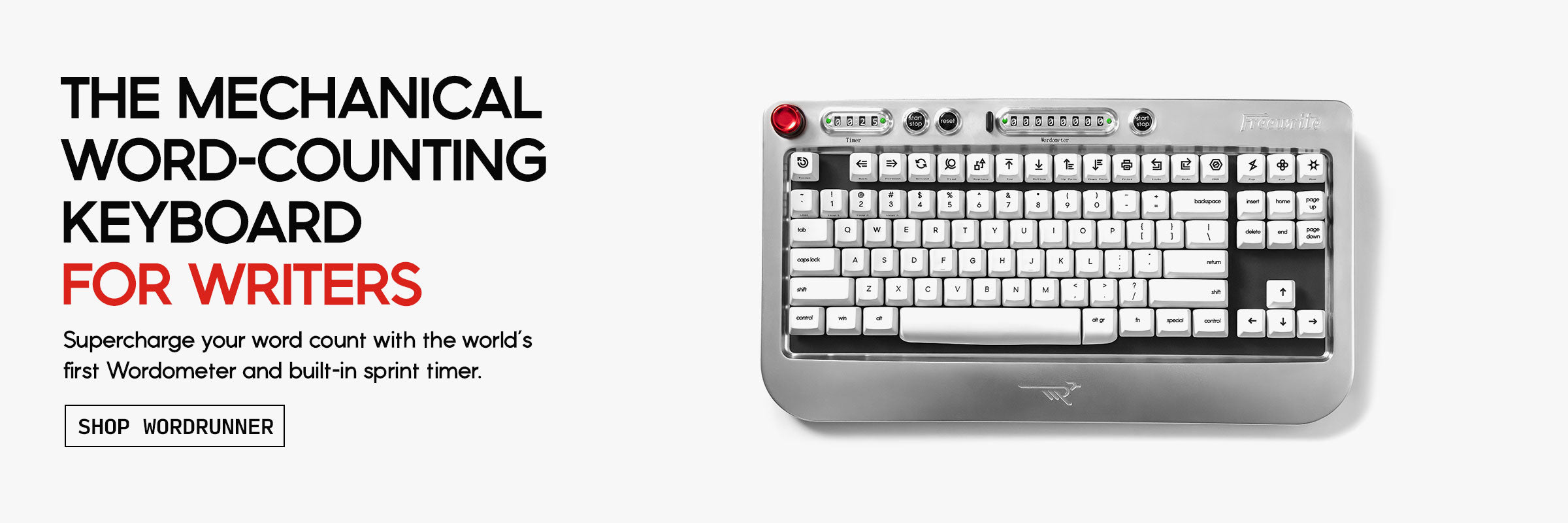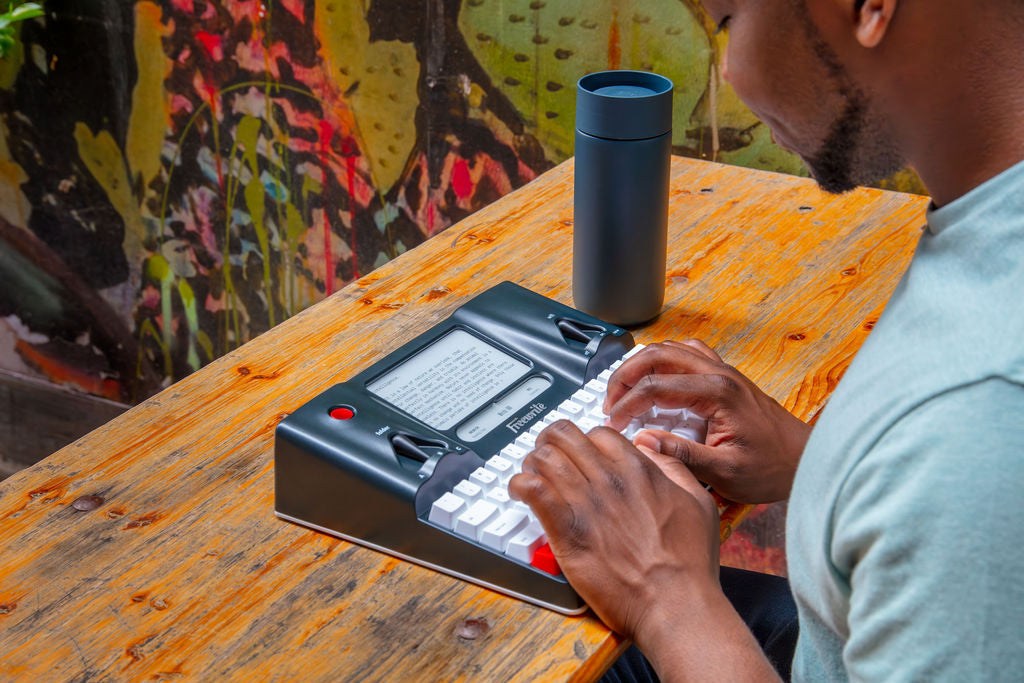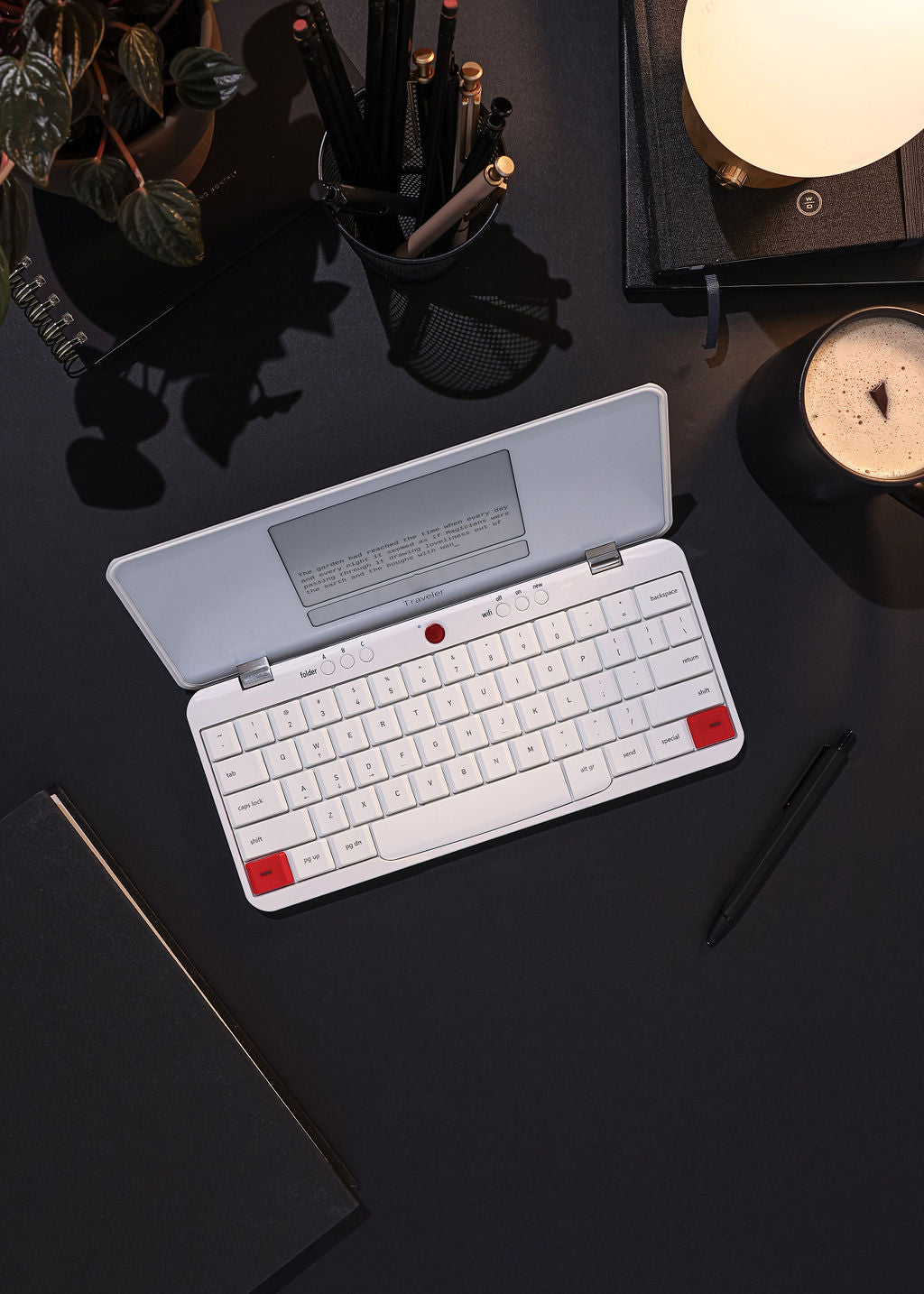If you spend a lot of time typing, you’ve probably heard people rave about mechanical keyboards. But what makes them different from the regular ones you see everywhere?
In this guide, we’ll break down the key differences between mechanical and normal keyboards, so you can figure out which one’s the right fit for you.

What Exactly Is a Mechanical Keyboard?
A mechanical keyboard is a type of keyboard where every key has its own individual switch underneath. Instead of using a soft rubber layer like regular keyboards, mechanical keyboards rely on actual mechanical parts. Think of tiny spring-loaded switches that give you a noticeable bump or click when you press them. This design gives you a more solid and satisfying feel compared to the softer, squishier feel of a normal keyboard.
Each switch in a mechanical keyboard is built to handle millions of keypresses, which makes it much more durable. You can also pick different types of switches depending on what you like. Some are clicky and loud, while others are smooth and quiet. Thanks to all these options, mechanical keyboards are a top choice for gamers who need fast, accurate keystrokes, writers who spend hours typing, and tech lovers who enjoy customizing their setups.
In short, mechanical keyboards are not just about cool designs or colorful lights. They are built to give you a better and more reliable typing experience. Once you try one, it is tough to go back to a regular keyboard.
What About a Normal (Membrane) Keyboard?
A normal keyboard, often called a membrane keyboard, works a little differently. Instead of having a mechanical switch for each key, it uses a rubber dome under the keycaps. When you press a key, the rubber dome pushes down and completes a circuit, sending the signal to your computer. The result is a softer, quieter keypress that feels more cushioned compared to the firmer, more noticeable feel of a mechanical keyboard.
Membrane keyboards are super common for a few good reasons. They are cheaper to make, so they usually cost less to buy. They are also much quieter, which makes them a good choice for shared spaces like offices or libraries where loud typing might be distracting. Even though they are not as customizable or long-lasting as mechanical keyboards, membrane keyboards are perfect if you just need something basic and reliable for everyday use.
In short, if you are looking for a budget-friendly, quiet keyboard without all the extra features, a membrane keyboard is probably what you are using right now, and for many people, it gets the job done just fine.
Key Differences at a Glance
If you are trying to quickly figure out which keyboard type might suit you better, here is a simple side-by-side comparison. This table highlights the biggest differences between mechanical and normal (membrane) keyboards without getting too technical.
|
Feature |
Mechanical Keyboard |
Normal Keyboard |
|
Switch Type |
Individual mechanical switches |
Rubber dome + membrane |
|
Typing Feel |
Tactile, clicky (or smooth) |
Soft, cushioned |
|
Durability |
50+ million keystrokes |
5-10 million keystrokes |
|
Noise Level |
Louder (but quieter options exist) |
Quieter, low noise |
|
Price |
Higher, but varies with brand and build |
Budget-friendly, easy to replace |
|
Customization |
High (keycaps, switches, RGB lighting) |
Low, mostly fixed design |
|
Key Travel Distance |
Longer, deeper keystroke feel |
Shorter, softer keystroke |
Mechanical keyboards stand out if you are after a premium feel, longer life, and the ability to tweak your setup to your liking. On the flip side, membrane keyboards shine when you want something simple, affordable, and quiet for basic tasks.

Digging Deeper: What Sets These Keyboards Apart
Typing Feel and Feedback
One of the first things people notice about mechanical keyboards is the way they feel when typing. Some switches give you that satisfying click sound, while others offer a smooth and quiet press. Whether you prefer a loud, clicky keyboard or a softer, more silent one, mechanical keyboards offer different switch types to match your style. Many people love the crisp, responsive feedback because it makes typing feel faster and more deliberate.
On the other hand, membrane keyboards have a softer, more cushioned feel. When you press a key, it sinks into the rubber dome without much tactile response. It gets the job done, but the feedback is not as sharp or as distinct as a mechanical keyboard. Some users like this because it feels lighter and quieter, especially in an office or shared space.
Durability and Lifespan
Mechanical keyboards are known for their durability. Each switch is built to last for tens of millions of keystrokes, meaning they can easily hold up for years, even with heavy daily use. Plus, if a key or switch ever wears out, many mechanical keyboards allow you to replace just that part instead of the whole keyboard.
Membrane keyboards, by comparison, tend to wear out faster. The rubber domes under the keys can lose their bounce and feel mushy over time, especially if you type a lot. For casual users, this may not be a big deal, but for someone who types all day, a mechanical keyboard could save you from having to replace your keyboard every couple of years.
Noise Level
Noise is another key difference. Mechanical keyboards are usually louder because of the physical switches inside. The clicking sound is satisfying to some, but it can be distracting in quiet environments. Luckily, there are mechanical switches designed to be quieter if you prefer less noise but still want that mechanical feel.
Membrane keyboards are naturally quieter because there are no hard mechanical parts clashing when you type. This makes them great for quiet offices, libraries, or late-night work sessions where you do not want to disturb others around you.
Customization Options
If you like to make your setup truly your own, mechanical keyboards are hard to beat. You can swap out keycaps for different colors or materials, change the switches to get a different feel, and even add fancy RGB lighting effects. Some mechanical keyboards also let you program custom macros, remap keys, and tweak settings through software.
With membrane keyboards, what you see is usually what you get. They typically come with a fixed design and fewer customization options. If you are someone who just needs a simple keyboard to plug in and use, this is not a bad thing. But if you enjoy personalizing your workspace, a mechanical keyboard will give you more to play with.
Gaming and Work Performance
Gamers and programmers often prefer mechanical keyboards because of the faster response times and the accuracy they offer. Features like n-key rollover and anti-ghosting make sure that every keypress is registered correctly, even when you press multiple keys at once - something crucial in fast-paced gaming or coding sessions.
Membrane keyboards are still a solid choice for casual use. If you mainly use your keyboard for web browsing, light typing, or occasional gaming, a membrane keyboard will handle those tasks without any trouble. It really comes down to how much performance you need and how much you type every day.
Which One Should You Pick?
Choosing between a mechanical keyboard and a normal (membrane) keyboard really depends on what you need and what feels right for you. Some people swear by the satisfying click and sturdy build of mechanical keyboards, while others are perfectly happy with the soft and quiet touch of a membrane keyboard.
Here’s a quick guide to help you decide:
Go for a Mechanical Keyboard if:
-
You type a lot for work, gaming, or school.
-
You enjoy a satisfying, responsive feel with every keystroke.
-
You want a keyboard that will last for years without slowing down.
-
You like customizing your setup with different switches, keycaps, or lighting.
-
You care about typing speed and accuracy for serious work or gaming.
If you're looking for a great mechanical keyboard, we have something just for you. Let us introduce a keyboard that takes the mechanical experience to the next level.

Meet Wordrunner: More Than Just a Mechanical Keyboard
As creators and heavy keyboard users ourselves, we know typing is more than just about comfort or speed. It is about seeing your progress, feeling connected to your work, and staying motivated. This is why we designedWordrunner, a mechanical keyboard built specifically for writers, gamers, and professionals. And we added one unique feature to truly set it apart.
Wordrunner comes with a built-in 8-digit mechanical Wordometer that physically tracks your word count in real time. Every keypress matters, and now you can actuallysee your progress as you type. No extra software, no pop-ups - just a clean, satisfying counter ticking up with every word you write.
Of course, we made sure Wordrunner checks all the boxes you expect from a premium mechanical keyboard:
-
Individual mechanical switches for a tactile, responsive feel.
-
Customizable keycaps and layouts to match your personal style.
-
Durable build to handle the heaviest typing sessions.
-
Smooth typing experience with switch options for both clicky fans and quiet typists.
We designed Wordrunner not just to make typing better, but to make it feel more rewarding. Whether you are racing through a novel, coding up a new app, or gaming late into the night, Wordrunner lets you track your journey one word at a time.
Stick with a Normal Keyboard if:
-
You are on a budget and want a more affordable option.
-
You prefer quieter typing, especially for shared spaces like offices.
-
You just need a basic, no-fuss keyboard for everyday tasks like browsing, emails, and casual gaming.
-
You want something lightweight and easy to replace when needed.
At the end of the day, it comes down to your personal preference. Think about what matters most to you - comfort, performance, quietness, or price - and pick the one that checks the right boxes.
Common Myths Busted
There are a few common myths about mechanical and normal keyboards that are worth clearing up:
"Mechanical keyboards are always loud."
Not true. While some mechanical switches can be loud and clicky, there are plenty of quieter options out there. Switches like Cherry MX Silent or certain linear switches are designed to reduce noise without sacrificing the feel that makes mechanical keyboards so popular.
"Normal keyboards are terrible for gaming."
Also not always true. While mechanical keyboards are usually preferred by serious gamers for their speed and accuracy, many membrane keyboards can handle casual gaming just fine. Some even come with features like anti-ghosting to improve gaming performance at a lower cost.
The truth is, both types have their strengths, and the best choice depends on what you value most.
Final Thoughts
Mechanical keyboards and normal (membrane) keyboards each have their own set of pros and cons. Mechanical keyboards offer a more tactile, customizable, and durable experience that appeals to heavy typists, gamers, and tech enthusiasts. Normal keyboards keep things simple, affordable, and quiet, making them a solid pick for everyday use and quieter environments.
At the end of the day, it is not about which one is better overall. It is about what feels right for you. Whether you are chasing the perfect typing experience or just need a keyboard that gets the job done, choosing the one that fits your style and needs will always be the best decision.
FAQ
Are mechanical keyboards really better for typing?
Many people find mechanical keyboards better for typing because they offer a more tactile and responsive feel. They can help improve typing speed and accuracy, but it mostly comes down to personal preference.
Are all mechanical keyboards loud?
No, not all mechanical keyboards are loud. There are quieter switch options like Cherry MX Silent or linear switches that reduce noise while still giving you the benefits of a mechanical design.
Can you game on a normal (membrane) keyboard?
Yes, you can. While mechanical keyboards are often preferred by competitive gamers for their fast response times, membrane keyboards are perfectly fine for casual gaming and everyday use.
Do mechanical keyboards last longer than normal keyboards?
Yes, mechanical keyboards are built to last much longer. They can handle tens of millions of keypresses, while membrane keyboards usually have a shorter lifespan.
Are mechanical keyboards worth the higher price?
If you type a lot, game regularly, or enjoy customizing your setup, a mechanical keyboard can definitely be worth the investment. If you just need something simple and budget-friendly, a normal keyboard might be all you need.























